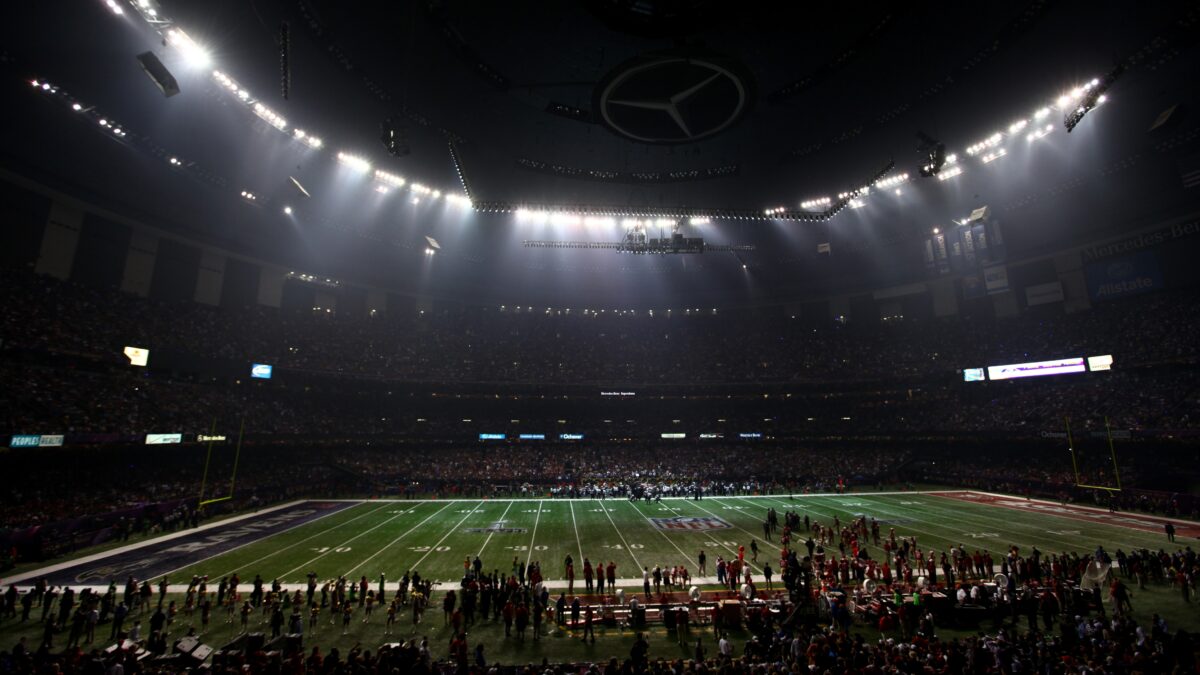
Why, that’s the question always being asked.
Let’s face it—nowadays NFL Football is the crown jewel of team sport in America… And the Super Bowl is its BIGGEST event—bar none.
Not only is it the pinnacle of competition, as the final two teams standing from the grueling season square off, but it is loaded with fanfare and publicity. Once the Super Bowl rolls around—the game and all of the players in it, as well as the performers, staffers, and so on fall into a fish bowl with the whole world watching.
Most years, the big game does tend to come and go without any major hiccups, but over the decades we have seen a number of scandals arise that the NFL absolutely HATES to talk about because of the impact that the “incidents” let’s call them—have on the game and the league’s brand.
Let’s take a look back at 10 of these issues that Roger Goodell wishes would just go away, so that he would never have to talk about them again!
Barrett Robbins Disappears
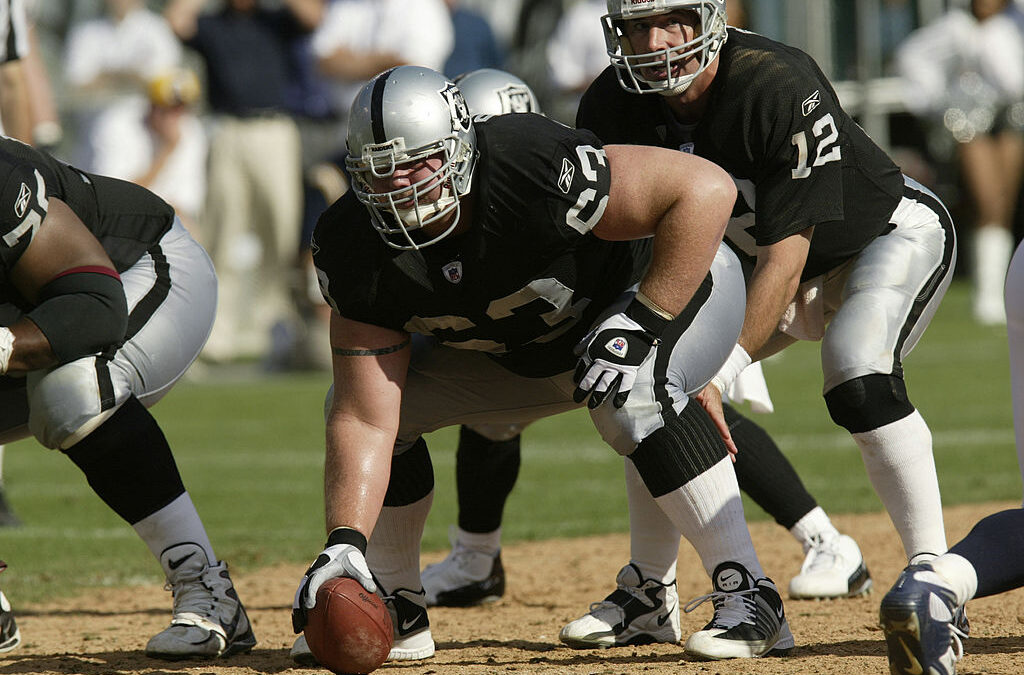
The then-Oakland Raiders were all the rage heading into Super Bowl 37. They had brought in an ageing, but still effective Jerry Rice to catch passes from the league MVP, Rich Gannon, and Bill Callahan had that offense flying. Simply put, expectations were high.
Click on ‘Follow Us’ and get notified of the most viral NFL stories via Google! Follow Us
So much so, that the pressure boiled over and the pre-game anxiety got the best of one of the Raiders most important, but vulnerable players—offensive lineman Barrett Robbins.
Robbins was not a flashy player, but he was the team’s starting center and played the position at the Pro Bowl level, which is no small task. But what many didn’t know about Robbins at the time was that he suffered from intense mental health issues, namely severe depression and bipolar disorder…
In the days before the big game, mania struck, and Robins vanished, and allegedly went on an alcohol-soaked bender in Tijuana, causing him to miss the game entirely. Oakland ended up losing in embarrassing fashion—and the NFL wanted the story to just disappear—so it didn’t have to address its failures in managing player safety and well-being.
The brand concerns go even deeper than that actually… Because the NFL HATES when anything borderline unsavory gets associated with their public image—and star player going AWOL does not exactly fit into the story they are trying to tell the American public.
Unfortunately, things haven’t gotten much better for Robbins in the time since, as he’s been in and out of prison since retirement—another aspect of the story that the NFL is tired of hearing about, as often comes with questions around the resources that they’ve provided for the league’s veterans after the playing days are a wrap.
Janet Jackson Super Bowl Halftime Show
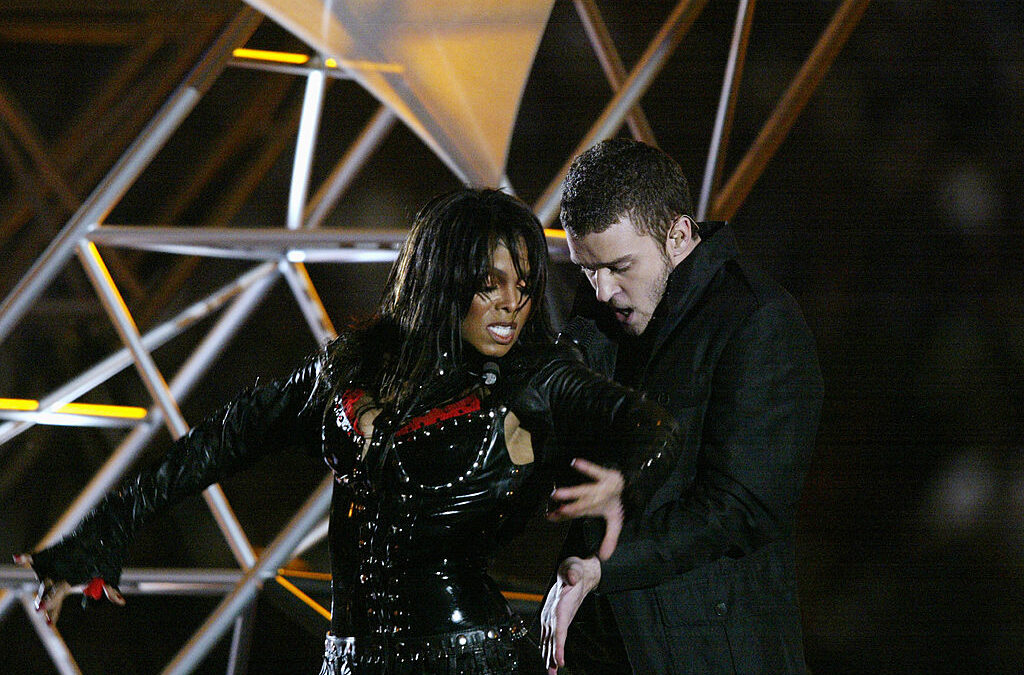
Long before the days of social media, Janet Jackson and Justin Timberlake went “viral” for their performance at the 2004 Super Bowl halftime, often referred to colloquially as “Nipplegate.”
While it is a silly nickname, the incident was really no laughing matter, as it created an inequitable media firestorm around the two singers. In fact, there is a real case that the ripples of this controversy are still felt today, as it essentially became a watershed moment in live television history, sparking debates on decency, censorship, and the cruel dynamics of blame and shame in celebrity culture.
Who would’ve thought that the NFL wouldn’t want to talk about all of that fun stuff!?
Jackson and Timberlake were two of the biggest performers in the world at that time, so all the attention was on them… But the duo decided to take it to another level orchestrating an exchange in which Timberlake assisted Jackson in a wardrobe malfunction exposing her breast on live television.
If the scandal itself wasn’t messy enough for the NFL to want to keep it quiet, the intense societal discussion afterward definitely was! Jackson absorbed the brunt of the criticism and ended up facing significant professional repercussions, while Timberlake’s career suffered comparatively less—dredging up further conversations about societal norms and the gendered double standards in the entertainment industry.
None of which, the NFL wants associated with its brand or its product!
Ravens-49ers Power Outage
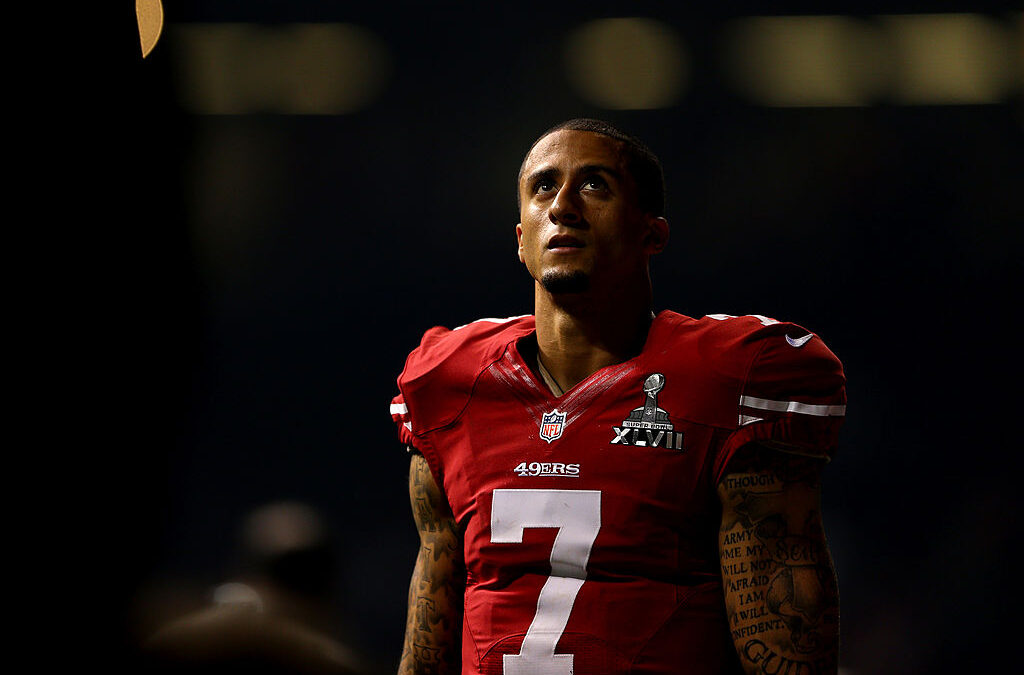
February 3, 2013. The Mercedes-Benz Superdome, New Orleans. Super Bowl XLVII.
This was one of the most highly-anticipated Super Bowls in recent history… because it was more than just a clash between the Baltimore Ravens and the San Francisco 49ers, but also the Harbaugh brothers, who were head coaching on opposite sidelines.
The Ravens were leading big early and had all of the momentum. Everything was going their way until the power in the stadium mysteriously and shockingly went out. The cause, as it turned out, was a faulty electrical relay device designed to prevent a power failure, but still, conspiracy theories rattled around the internet like a wildfire.
Had someone sabotaged the electricity to buy San Francisco some time to regroup?
If they did, their plan worked extremely well… nearly to perfection! As Colin Kaepernick and the 49ers came roaring all the way back.
Alas, their comeback efforts came up short, but the questions after the big game still remained… what really happened to the power in the stadium? The NFL has to be happy that the Ravens ultimately hung on—because if San Fran had secured the victory after that—the intensity of questioning about the incident would’ve spiked considerably
M.I.A. Gives the Bird
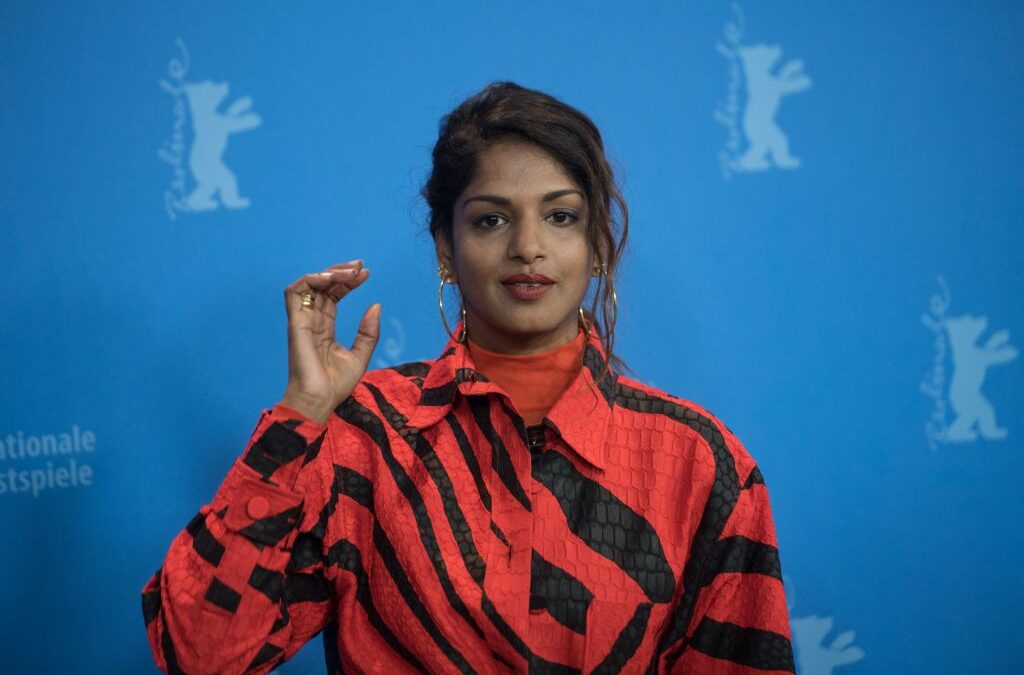
Heading into the 2012 Super Bowl, there was a lot of excitement around Madonna’s halftime show at Lucas Oil Stadium in Indy.
It was, however, M.I.A. a lesser-known British rapper that ended up stealing the show by flipping the camera the bird during the performance—and unknowingly sparking a relentless backlash and ceaseless discussions about censorship, artistic freedom, and a bevy of other social issues that the NFL hates to talk about.
While a lot of the controversy has subsided at this point, you have to think that it still grinds the league’s gears to see this incident get brought up again—nearly every year—once the Super Bowl halftime show performers are announced.
Eugene Robinson Arrest
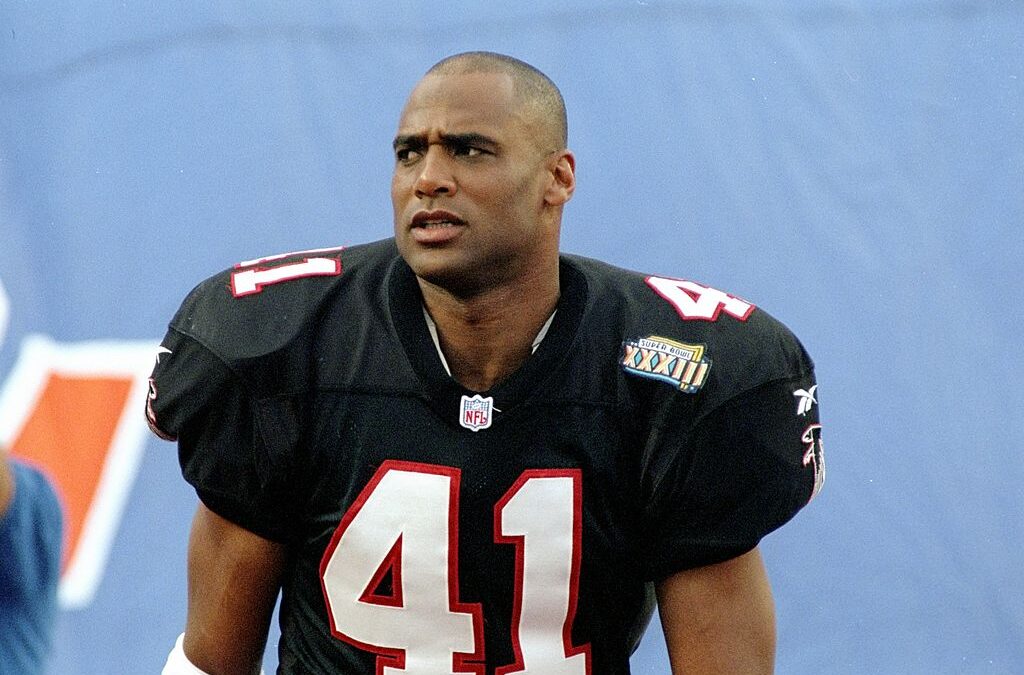
In the late 1990s, Eugene Robinson was known, not just for being one of the top safeties in the league, but also one of the top “men” in the league—something that the NFL loves to tout proudly and bizarrely take credit for…
Anyway… Heading into the Big Game, Robinson had just been celebrated for receiving the Bart Starr Award for high moral character.
Good, great! All positive things…
The only problem?
The NFL star was caught in an undercover police operation during Super Bowl week and arrested for soliciting an undercover officer. This incident sent shockwaves through the sports world, casting a shadow over his recent accolade and raising questions about how seriously the NFL really took character and integrity.
Especially considering the Falcons—and by proxy—the NFL allowed the embattled safety to take the field the next day to play in the Super Bowl despite the charges!
Comcast Gets Hacked
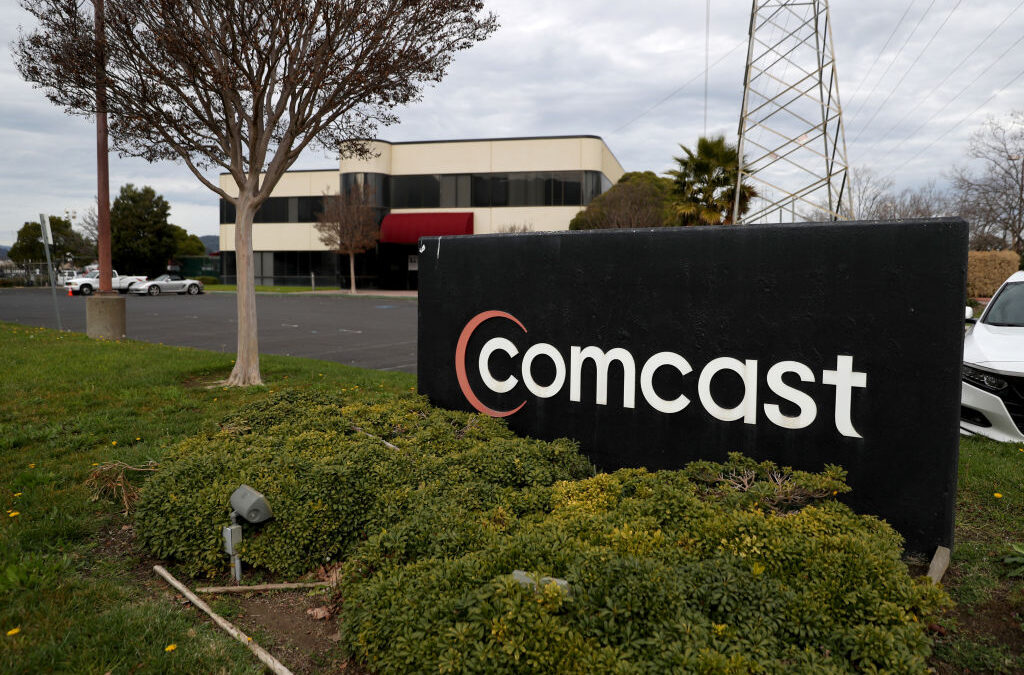
The NFL tries its best to propagate a family-friendly viewing experience through a number of means… But all of those efforts were for not during Super Bowl 43, when the viewers at home watching the big game got a shocking surprise when they were expecting to see a replay of a touchdown.
Instead, they got somewhere between 10 and 30 seconds of uninterrupted pornographic imagery blasted out to the entire nation.
Comcast later explained that this interruption was the result of “an isolated malicious act,” indicating that someone deliberately tampered with the broadcast to insert this content and create a massive scandal—that Comcast and the NFL were left to clean up.
Obviously, this one isn’t entirely on the NFL, as a lot of it was out of their control… But that doesn’t mean that the powers that be in the league office don’t want to wipe this incident out of the history books forever.
Officiating in Super Bowl XL
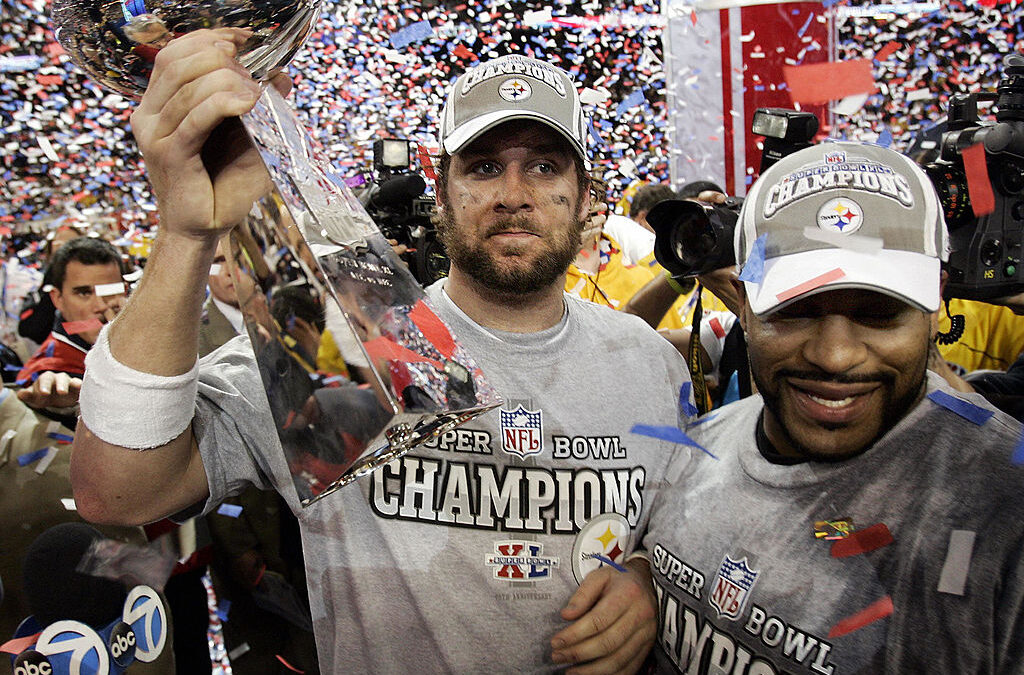
Super Bowl 40 was supposed to be a marketable celebration of NFL history, but, instead, became the center of widespread controversy not for the plays on the field but for the decisions made by the officials.
The game was marred by several contentious calls that left players, coaches, and fans questioning the fairness and integrity of the officiating, particularly because the Pittsburgh Steelers, one of the league’s most influential franchises, seemed to continually be the beneficiary.
In the aftermath, the NFL faced significant scrutiny from media, fans, and even players. Everyone was dissecting the calls, with some arguing that the officiating had a clear impact on the outcome of the game in Pittsburgh’s favor.
This is the absolute last thing that the NFL wants to have happen… Goodell must have been fuming to have the integrity of the league’s biggest game questioned!
Stanley Wilson Rehab
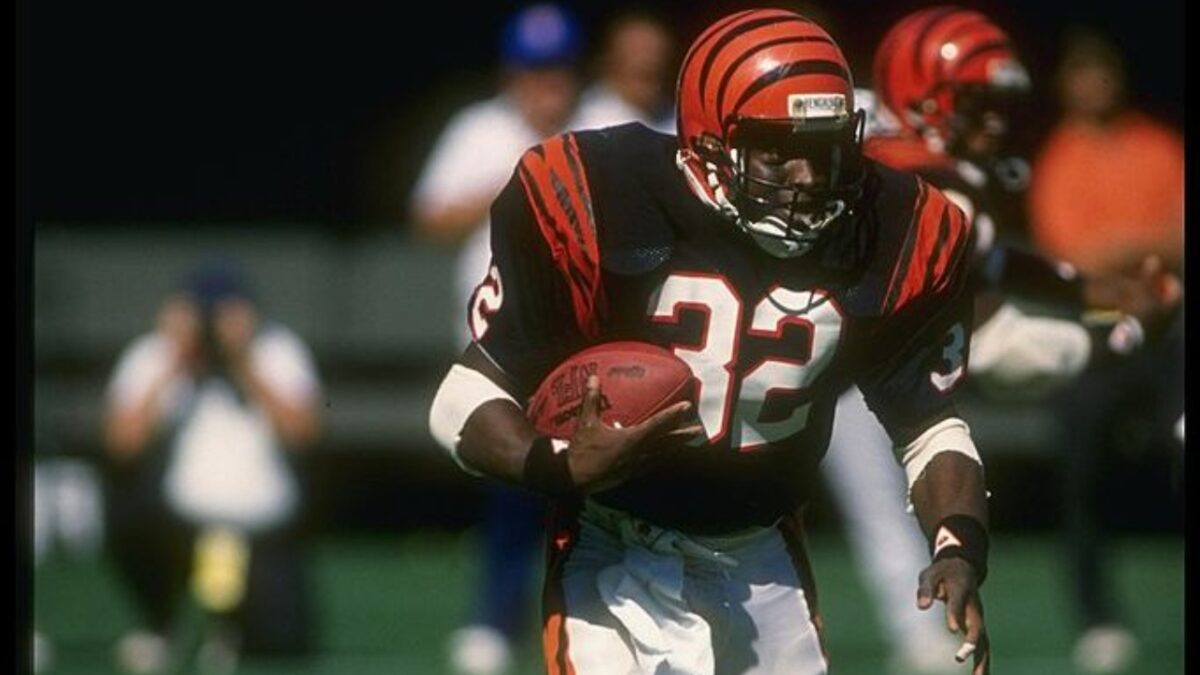
The NFL has had a real issue over the years navigating complex social issues, like mental health and drug addiction.
Granted, these are highly challenging topics to tackle, but there is no denying it has been a pain point for the league… one that reared its ugly head on the eve of Super Bowl 23 between the Cincinnati Bengals and the San Francisco 49ers.
Bengals running back, Stanley Wilson, who it is worth noting had previously been suspended for the better part of three seasons, had a tragic relapse just before the big game.
While not the lead back, Wilson had carved out a nice role in the Bengals offense during that season, and was expected to be part of the gameplan on Super Bowl Sunday.
The team noticed something was up when Wilson missed the final pre-game meeting—they went up to check for him in his room and found him utterly strung out in his bathtub.
Wilson expectedly missed the big game, which Cinci lost by a narrow margin, 20 to 16, leaving fans to wonder that if they’d had him—or at a minimum—not had the massive distraction… if the Bengals would’ve been able to emerge victorious.
Nevertheless… this was a serious black eye on Super Bowl Sunday and the NFL’s image—and thus, something that the league… to this day still hates to talk about!
Brett Favre on Bourbon Street
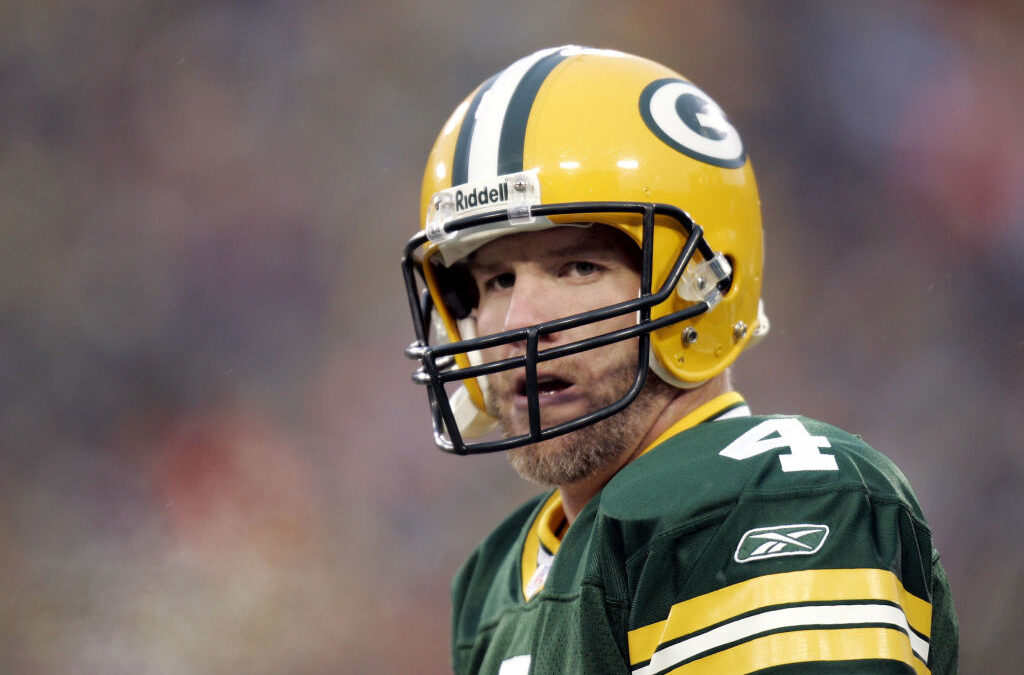
In the lead-up to Super Bowl 31, held in New Orleans in 1997, Brett Favre, the Green Bay Packers’ star quarterback, made headlines in a big way.
Favre was no stranger to being in the news… just usually it was for his on-field prowess rather than the off-the-field activities, which we have since learned were quite action-packed in their own right.
Apparently, Favre had a hard time blocking out temptation during Super Bowl week—even with the weight of a franchise and fan base’s hopes resting on his shoulders—and he was regularly spotted on Bourbon Street partying in the days before the big game.
The gunslinger was apparently going so hard that he was dry-heaving in the locker room before kickoff on gameday.
Fortunately for the NFL—and number 4, one of the league’s most marketable players, all of that partying didn’t have too much of an impact on his performance, as he was still able to lead his team to victory over the New England Patriots and secure the Super Bowl MVP honors in the process.
Man, could it have been worse for Favre if he had laid an egg… this was a legitimate controversy and national conversation leading up to gameday—and if he came out flat—or the Packers lost the game… all eyes would’ve been on the quarterback for his questionable “preparation.”
This is the exact kind of perception that the NFL has been trying to get away from over the years, so you can understand why the league brass were none too pleased to see these reports—and still hate to talk about it to this day!
Adrian Awasom’s Arrest
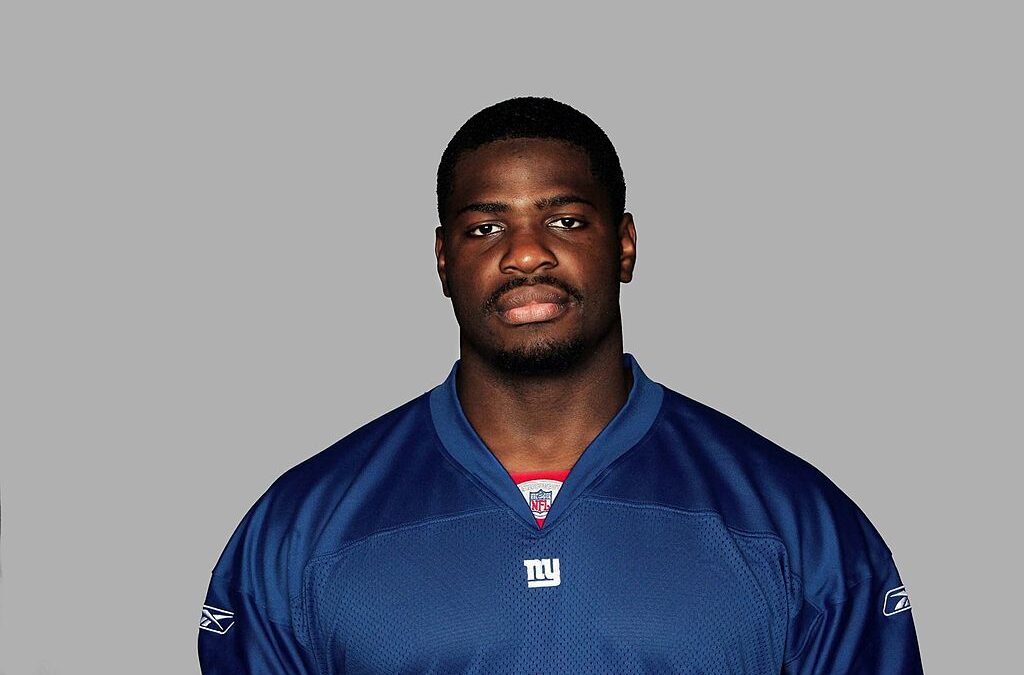
Super Bowl 45 was supposed to be one of the most celebrated showdowns of its time—as it featured two of the NFL’s marquee franchises: the Green Bay Packers and the Pittsburgh Steelers.
This massive marketing opportunity, however, was in-part derailed by Adrian Awasom—a player for the New York Giants’ arrest following the Super Bowl.
New York’s defensive end caught a DWI that completely took the wind out of the league’s sails—as much of the national discussion became about player conduct and the league’s approach to dealing with it, rather than the legendary match up on the field.


